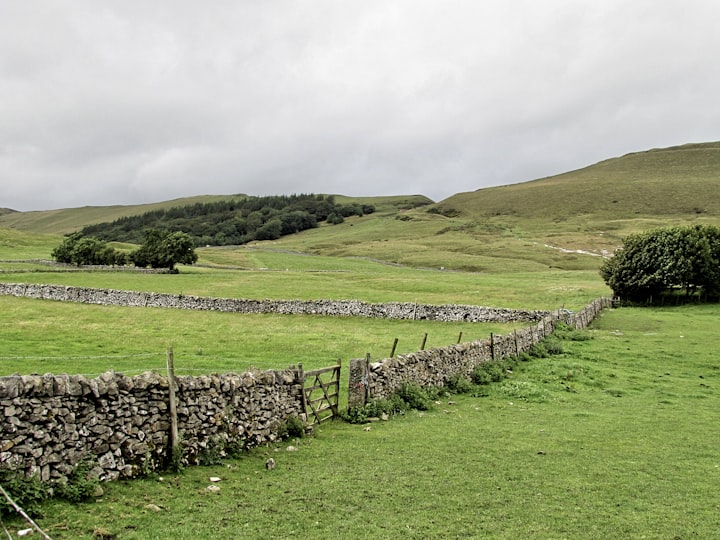She woke up to syrupy sunlight pooling on the bed and as she languorously stretched her arms and legs she felt like a pat of butter melting on a piece of toast. She showered and put on her same clothes, and despite the wine and the lack of a toothbrush or fresh underwear, she felt surprisingly clean, wonderfully refreshed.
When she came downstairs Peter was already setting out bowls for cereal and she inhaled the tantalizing aroma of fresh coffee. How wonderful it was, Sarah thought, to be taken care of in such a way. And yet it was awkward too; there was such intimacy in these small things.
She smiled rather shyly and Peter smiled back, and then it suddenly seemed normal, chatting over breakfast, making another pot of coffee and passing the marmalade jar between them as they finished the toast, before he disappeared into his study and she started the dishes.
The rest of the day passed as it normally did, and when it was half past four Sarah put the beef stew she’d made into the warming oven, and set the table for one. It was her way of reminding herself, as well as Peter, that last night was an aberration. She wouldn’t expect him to invite her again.
It wasn’t until she was leaving for the day, taking her bike from where it had remained propped against the wall all night, that she realized how things looked. How they’d been judged.
The neighbor from across the street with the iron-grey curls stood in her doorway, a tea towel clenched in one hand, as Sarah wheeled her bike down Peter’s path and through the gate. She looked up, stopping suddenly at the look of naked hatred on the woman’s face.
“Shame on you,” she spat. “Shame on you, taking advantage of an old man. He could be your father, or even your grandfather, and his Rachel has only been gone a year.”

Sarah simply stared, too shocked to form any response. The woman shook her head in disgust and turned away, slamming the door behind her.
Sarah cycled slowly home, still reeling from the woman’s scathing indictment. She thought of her bike left against the wall all night and knew, with a sudden jolt of shock, what the whole village would think. What they had been thinking, and she’d been too naïve and isolated to realize.
They thought, Sarah acknowledged as she pedaled faster, her hair flying behind her, that she and Peter were having an affair. A sordid, sexual affair. Her insides curled up in mortification at the thought. She couldn’t tell him; it had been bad enough, everyone thinking she was taking advantage of him. But having an affair…
She felt dirty somehow, as if the suspicions of Peter’s neighbors had some validity, even though she knew they did not. She’d never thought of Peter that way. If anything, she thought of him as a father, or even a grandfather. She longed for his approbation, not his love. Not like that, anyway.
Never like that.

The next morning she cycled through the village with her head down, not meeting anyone’s gaze. She didn’t go in the garden, in case the neighbor (‘Peter, is it’) confronted her. She still felt dirty, and yet angry too, for the small sanctuary she’d made for herself felt spoiled now, and the simple pleasure she’d taken in cleaning, cooking, and just pottering about was elusive. What had once been a joy became mundane and even empty, just tasks to be completed.
How had she ever thought this was a home? A life?
“What’s wrong?” Peter asked later that morning. She’d taken their tea things into the kitchen and was washing the cups in the sink. He stood in the doorway, slightly stooped, frowning in a gently befuddled way.
“Nothing. Just a bit tired.” She smiled and brushed the hair out of her eyes.
“You’re bored, aren’t you,” Peter said. He sounded almost guilty. “Here I am, having you cook and clean and hoover the bloody carpets, and you’ve got a very good university degree.”
Sarah shook her head. “It’s my choice, Peter, and I like what I do.” At least she had. And nothing else had ever seemed possible.
“This is going to sound terribly rude, I know, but why—why haven’t you got a proper job?” As soon as he said the words, he hung his head, as if in apology.
Sarah turned around and leaned against the sink, wiped a strand of hair away from her face. “What’s a proper job?” she asked lightly.
“You know—something that uses your brain. Teaching or research or—I don’t know. Anything.”
Why hadn’t she? Because, Sarah knew, finding a home had been more important than having a career. But she couldn’t tell that to Peter; she couldn’t admit that his house, his life, was her home. It was too pathetic, and it might alarm him. He might take it all away from her, decide she was a bit too much. A bit unstable, even.
“I like what I do,” she said again.
Peter was silent for a long moment, a furrow bisecting his forehead. Then he looked up, a new light in those faded blue eyes. “What would you say—and of course you can say no—if I asked you to help me with my research? You’d probably be just as bored doing that, actually—it’s a terrible idea, isn’t it?” He shook his head, hopeless and yet so clearly hopeful at the same time, and Sarah smiled slowly.
“No, it’s not a terrible idea. I’d like it, I think.”
And so she started that afternoon, helping him organize his notes, reading what he’d written, offering suggestions. It made him come alive to talk about his work with someone; the years dropped off him and his voice grew louder with enthusiasm as he gestured with his hands and his glasses slipped from his forehead and fell to the floor.
Sarah retrieved them, handing them back with a smile. “You’re very passionate about seventeenth century shipping policies,” she said, and he laughed.
“I’m mad, aren’t I? I’ve been going on about archaic legislation for the better part of an hour.”
“Mad in a good way,” she assured him. “But I’d best see to your dinner.”
He followed her into the kitchen and watched as she unwrapped the foil from a casserole she’d made earlier. “Why don’t you stay?” he asked and she shook her head.
“There’s only enough for one—”
“We could stretch it out with bread and salad.”
He sounded so hopeful, and her heart constricted because she wanted to stay but knew she shouldn’t. She thought of the neighbor, the hatred on her face. “I have to get back,” she answered, more shortly than she intended, and Peter deflated.
“Of course you do. Of course. I’m sorry.” He put his hands in the pockets of his trousers and gave her a rather bashful smile. “You must have friends, or a boyfriend. Plenty of people to see.”
She didn’t answer, because to say she didn’t seemed too revealing, or as if she were begging to stay even though she’d said she wouldn’t.
She cycled back to her bedsit that seemed bleaker than ever, and ate beans on toast before she took out the book on herb gardening she’d been reading. She managed three pages before she put it down and drew her knees up to her chest, and then a silent sob shuddered through her and the tears slipped down her cheeks quietly, coldly, the only way she’d ever cried.
She felt as if she’d lost something precious, but she told herself she hadn’t. She had everything she’d had before: her job, the joy of cooking and cleaning and tending the garden. If she’d lost anything, it was the growing friendship between her and Peter, and perhaps that was for the best. Perhaps she’d been trying for something she didn’t really know how to have.
She continued to work with him in the afternoons, but she felt a certain reserve between them now, not cold but restrained, as if they were both keeping themselves from something that had once felt natural. Peter didn’t ask her to share his dinner again, and a few weeks after she’d said no to his invitation he took his eleven o’clock tea in his study.
She’d already laid the biscuits out, the two cups; the kettle had just begun to whistle when he’d appeared in the doorway of the kitchen, not quite meeting her gaze. “I’ll just take my tea in here today,” he said, gesturing behind him to the half-open door of the study. “I’m in the middle of something…”
In her haste to disassemble the tea things, Sarah knocked a cup and it shattered on the floor. “Oh—” She stared at it in horror; she’d been using the good china, and had for months, but she felt now that she shouldn’t have.
“It doesn’t matter,” Peter said quickly. “We hardly ever used those cups.”
Sarah stooped to pick up the shards of porcelain. “I’ll bring your tea in a minute,” she said, and Peter stood there while she collected the broken pieces before he finally shuffled off. She closed her eyes and clenched her hands, and a shard bit deep into her thumb. Whimpering softly, she sucked the blood from her thumb and then took a deep, shuddering breath, rising from the floor.
When she brought Peter’s tea into the study, she left it on the corner of his desk. He lifted a hand in thanks, lost in his research, and she went out of the room quietly, sat in the kitchen alone while she sipped a cup of tea she didn’t really want.
About the Creator
Kate Hewitt
I am a bestselling author of both novels and short fiction. I love writing stories of compelling, relatable emotion. You can find out more about my work at kate-hewitt.com







Comments (1)
when are you going to add more sections to the story to finish it